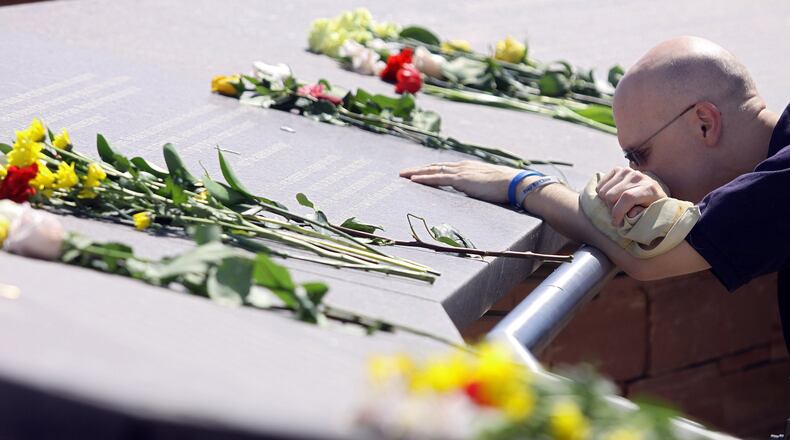Two decades have passed since the Columbine High School shootings -- a tragedy that left 12 students and one teacher dead, and changed the national conversation on school violence.
On April 20, 1999, two Columbine seniors arrived at the school, armed with guns, knives and homemade explosives. The pair went on a shooting rampage before taking their own lives, according to a CNN timeline of events.
In the end, 12 students (not including the shooters) and one teacher perished. Twenty-three others were wounded, some of whom were paralyzed. Many of those who weren’t physically injured suffered emotional wounds.
The shooting rocked the normally sleepy community of Littleton, Colorado, a suburb of Denver, then-Columbine High School Principal Frank DeAngelis told CNN. The tragedy ranks as one of the worst mass shootings in U.S. history as well as one of the deadliest episodes of school violence, CNN reported.
"At times, it seems like it was just yesterday, and then other times, it seems like it was in a far distance," DeAngelis told KUSA-TV.
Friday evening, hundreds of mourners gathered at the Columbine Memorial, which stands in a park near the school, to honor those who lost their lives, KMGH-TV reported.
Survivors and victims’ families have spoken to local and national media about the lasting impact the shootings have had on their lives.
One of those survivors is Patrick Ireland. Now a 37-year-old father of three, Ireland was a 17-year-old student at the time of the shooting, KUSA-TV reported. He was shot and badly wounded in the school's library.
Ireland recalled to the news station the support he received after the shooting.
“So many of my strong bonds and relationships were formed from everything that we went through at Columbine,” he said. “There was no playbook written for how a community should respond to this. People just opened up their hearts and their homes and were able to create that sense of belonging that really bonded the community together.”
Cori Sanders lost her father, teacher Dave Sanders, in the shooting. Dave Sanders is credited with saving the lives of dozens of students as he put himself between them and the gunmen, according to KUSA-TV.
"My older daughter for many, many years would say Grandpa was in the wrong place at the wrong time," Sanders said. "Ten years ago, without prompting, she said he was at the right place at the right time, and I think that was really an important shift for our entire family."
DeAngelis recalled to CNN the “enormous burden” he felt to rebuild the Columbine community in the wake of the shooting.
"I tried to do everything to protect what I call the Columbine family," he said. "But when I would come home, I just wanted to be left alone … It cost me my marriage. My wife was saying, 'You're not the same person I married. You've changed.' And I did. I felt so much guilt."
Today, DeAngelis works with the Principal Recovery Network to provide support to school administrators and staff who have experienced gun violence on the job. He said he remains in contact with the "Columbine family."
He said years of therapy have helped him in the two decades since the shooting.
"He (the therapist) made me realize that Columbine is not going to define me. And that helped a lot," DeAngelis said. "I've just got to get it in my mind that it's OK."
About the Author
The Latest
Featured

